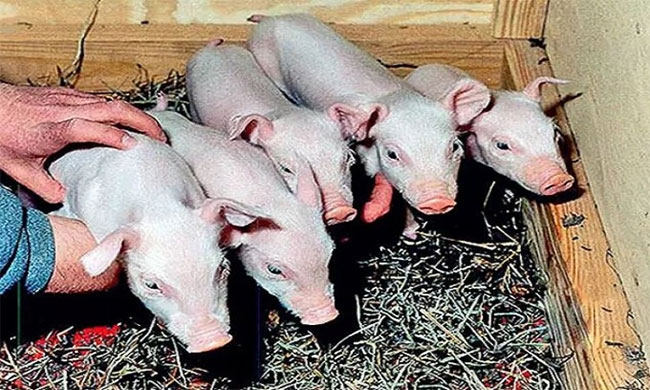Researchers in China have announced the development of a fully robotic pig cloning process.
In March 2022, a surrogate mother pig gave birth to seven cloned piglets at the Artificial Intelligence School of Nankai University in Tianjin. “Every step of the cloning process is automated, with no human involvement,” said Liu Yaowei, a member of the research team.

Cloned pigs created using somatic cell nuclear transfer. (Photo: China Daily)
Liu also emphasized that the use of robots increases the success rate of the cloning process, as they are less likely to cause cellular damage during the complex cloning procedure. If effective, this automated system has the potential to develop into a cloning kit that any company or research institute could purchase, freeing scientists from the time-consuming and labor-intensive manual cloning work, according to Pan Dengke, a researcher at the Chinese Academy of Agricultural Sciences.
Pan, founder of Clonorgan Biotechnology in Chengdu, previously created over 1,000 cloned pigs manually each day. The process was so time-consuming and complex that it caused him back pain. The most common technique for cloning an embryo in the laboratory is somatic cell nuclear transfer, which is performed under a microscope. This technique requires both an egg cell and a somatic cell from the animal to be cloned. Researchers remove the nucleus of an egg cell from a different animal and replace it with the nucleus from a somatic cell.
In 2017, the research team at Nankai University produced the world’s first cloned piglets using robots, although some steps in the process, including the removal of the nucleus from the egg cell, were still performed by humans. Since then, they have improved the control algorithms and can now automate every step of the process. The researchers will detail their techniques in a paper published in the journal Engineering.
Over the past five years, the research team has also increased the successful development rate of cloned embryos from 21% to 27.5%, compared to 10% when performed manually. “Our AI system can analyze the types within the cells and direct the robots to use minimal force to complete the cloning process, reducing cellular damage caused by human hands,” Liu shared.
Liu and his colleagues hope that these new achievements can help increase the number of high-quality pigs in China, reducing the country’s dependence on imported sources as it is the world’s largest consumer of pork. The robotic cloning technique also has a wide range of applications in animal husbandry, including reproductive assistance and breeding. The research team is looking to commercialize the robotic cloning process.


















































